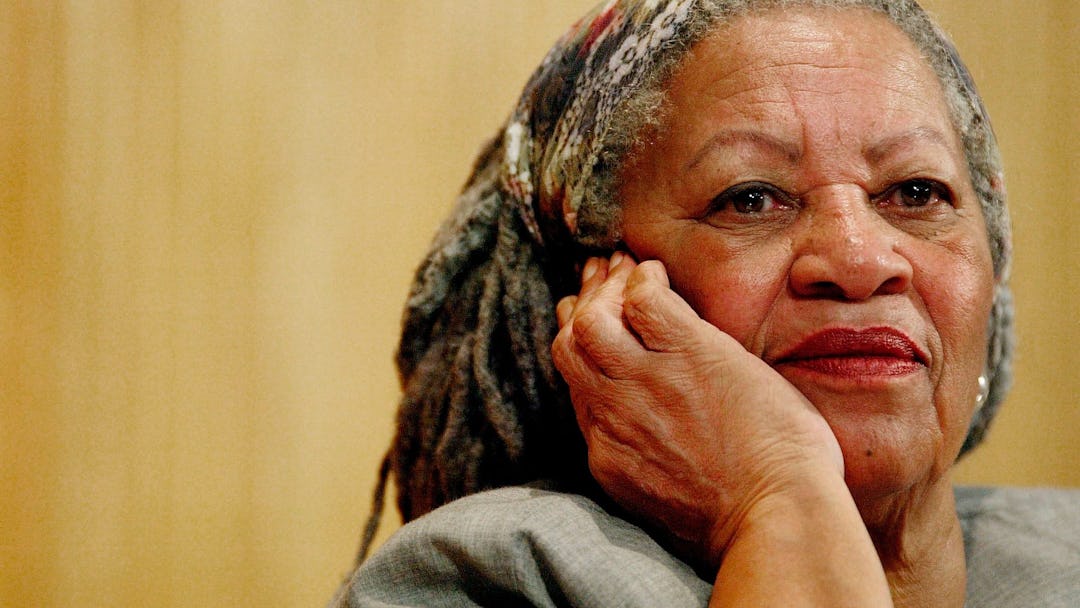Toni Morrison is both a gorgeous writer and an extremely gifted thinker. On her birthday, February 18th, we celebrate her words on race, gender, the world’s troubles, and the duty and process of those who write their way out of the mess. These quotes will have to suffice until we can read her new novel, God Help the Child, later this year.
What I think the political correctness debate is really about is the power to be able to define. The definers want the power to name. And the defined are now taking that power away from them.
Language can never “pin down” slavery, genocide, war. Nor should it yearn for the arrogance to be able to do so. Its force, its felicity is in its reach toward the ineffable. Be it grand or slender, burrowing, blasting, or refusing to sanctify; whether it laughs out loud or is a cry without an alphabet, the choice word, the chosen silence, unmolested language surges toward knowledge, not its destruction. But who does not know of literature banned because it is interrogative; discredited because it is critical; erased because alternate? And how many are outraged by the thought of a self-ravaged tongue?
On the meaning and measure of life:
We die. That may be the meaning of life. But we do language. That may be the measure of our lives.
On oppression (from Beloved):
Anybody white could take your whole self for anything that came to mind. Not just work, kill, or maim you, but dirty you. Dirty you so bad you couldn’t like yourself anymore. And though she and others lived through and got over it, she could never let it happen to her own. The best things she was, was her children. Whites might dirty her all right, but not her best thing, her beautiful, magical best thing — the part of her that was clean.
On imagination and writing the unfamiliar (from Playing in the Dark: Whiteness and the Literary Imagination):
The ability of writers to imagine what is not the self, to familiarize the strange and mystify the familiar, is the test of their power.
On flying (from Song of Solomon):
Wanna fly, you got to give up the shit that weighs you down.
On our obligations to others:
“I tell my students, ‘When you get these jobs that you have been so brilliantly trained for, just remember that your real job is that if you are free, you need to free somebody else. If you have some power, then your job is to empower somebody else. This is not just a grab-bag candy game.”
I’m just trying to look at something without blinking, to see what it is like, or it could have been like, and how that had something to do with the way we live now. Novels are always inquiries for me.
On the “wanton woman” character:
“The idea of a wanton woman is something I have inserted into almost all of my books. An outlaw figure who is disallowed in the community because of her imagination or activity or status—that kind of anarchic figure has always fascinated me. And the benefits they bring with them, in spite of the fact that they are either dismissed or upbraided—something about their presence is constructive in the long run.
On freedom arising from her kids, and from writing:
They made certain demands, but they didn’t care if I was sexy or hip, or any of those things that seem to factor in how we are judged—or at least how I was judged, as a woman in the publishing industry, by a certain kind of ambition. Other than taking rudimentary care of them, they just wanted me to be honest, and have a sense of humor, and be competent. That was simpler for me. Outside was complicated. But the writing was the real freedom, because nobody told me what to do there. That was my world and my imagination.
